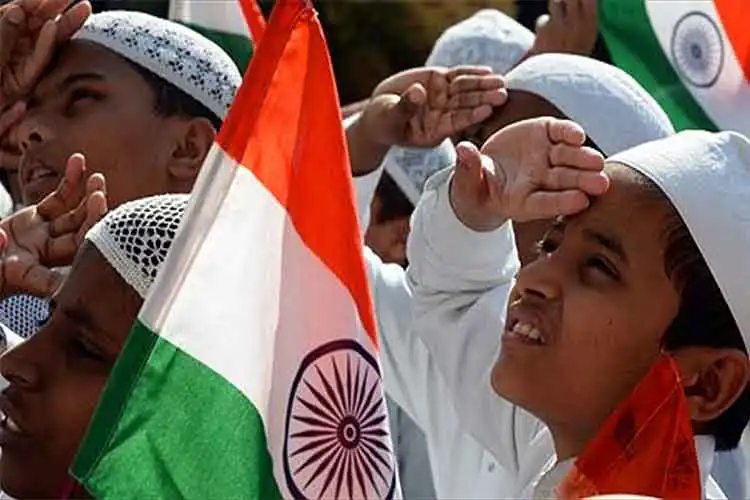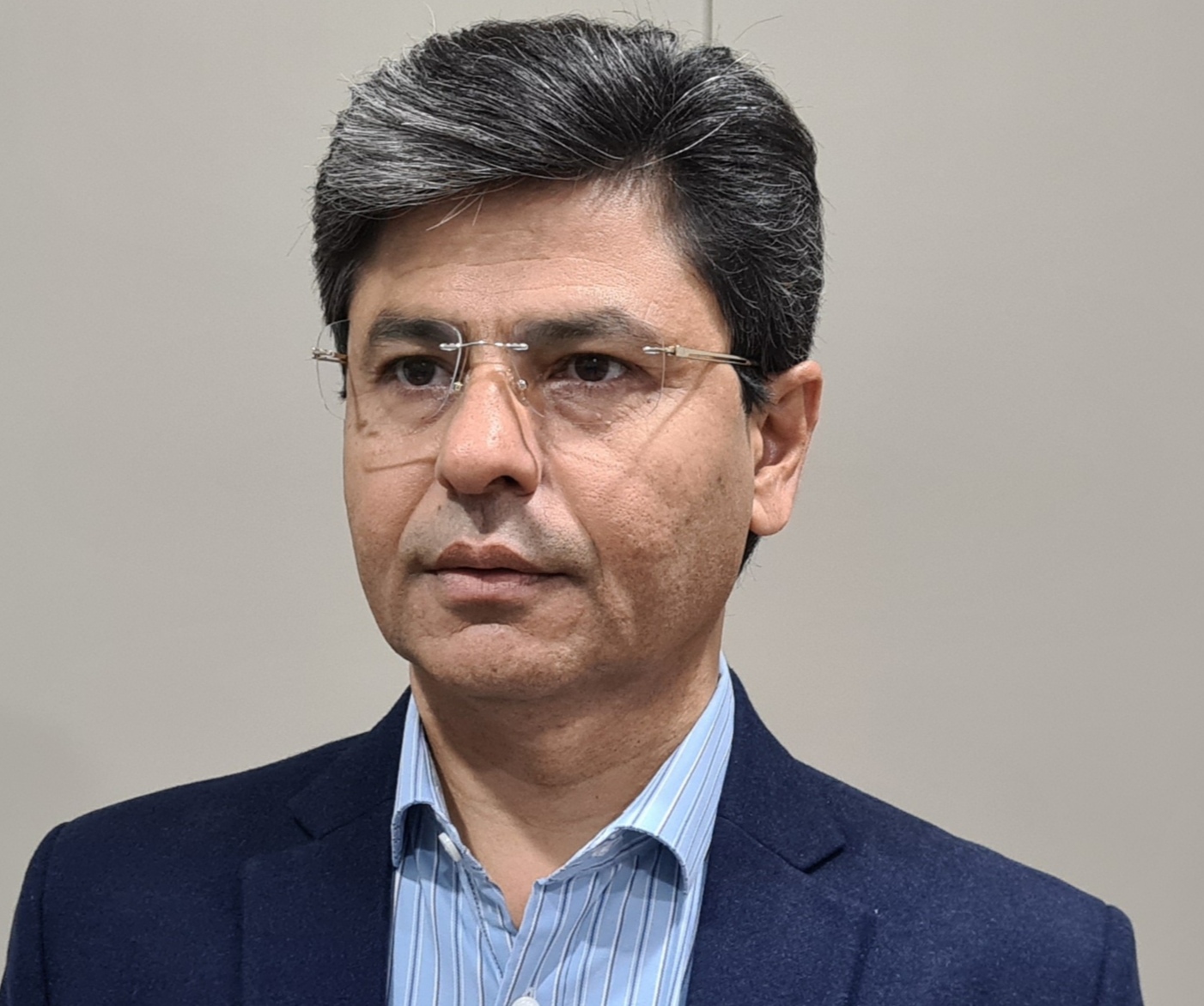
 Atir Khan
Atir Khan
It is believed that every generation becomes wiser than the earlier one. Yet there has always been a tendency of underestimating the young. Old age comes with a flip side, with growing age people tend to become over-protective or over-cautious about the future of their children.
The parents, blood relation uncles, and those in the neighbourhood would always be ready to give away some of their pearls of wisdom to youth. These days what’s agitating their minds is the communal cauldron. A perception that communal hatred has spread to a large and irreversible extent.
Some of them even create a doomsday scenario for the future generation. Like the world will come to an end or something.
In doing so people often tend to miss the point and are only spreading the hatred they are worried about. They would be better off playing the role of air traffic controllers rather than becoming pilots for the youth’s destiny.
There is one duty however, they need to perform. They must encourage the young to celebrate India’s rich civilisation and not just India as a nation.
It would not be incorrect to attribute the communal conflict in India as a consequence of the underplay of great Indian civilization.
Religious issues do not just arise out of the conflicts of ownership of places of worship and practices within the country. Nor is the political dispensation responsible for the state of affairs today.
It’s the burden of the backlog of issues that were dormant but have now surfaced strongly. These things are also happening due to the struggle, which Indian civilization has gone through and is facing on its way to becoming a superpower, a world leader.
Two great contemporary political scientists Samuel H. Huntington & Tariq Ali tried to justify the world events in their works The Clash of Civilisations and The Clash of Fundamentalism from their point of view.
Huntington said that people’s cultural and religious identities would become the primary source of conflict in the world post the Cold War. Ali’s thesis was that growing fundamentalism among Muslims is reactionary.
Are we not entitled to our point of view? Let us introspect and see where we stand today. We are already the world’s fifth-largest economy. Soon we would be the most populous country in the world.
The question we must ask ourselves is whether it is just our religious disputes arising out of temples or masjid things and religious practices, which are affecting our relations, or is there some larger influence we often tend to ignore?
Over the generations, Indians have been dragged into the dominant world narratives, which have brought them into conflict with each other, especially the Hindus & Muslims.
When the British came to India, they influenced both Hindus and Muslims as per the convenience of their political system. They divided, and they ruled.
When the British left the country, Indian Muslims rather than strengthening their roots in the country started getting influenced by the thoughts propagated by some Muslim countries, which necessarily did not suit the Indian setting. In a way, we have been more dependent on chemical fertilisers, without even realising which fertiliser suits our climate and fields, rather than working on our organic growth.
The actual problem seems to be that between the Western and Islamic civilisations, which to date continue to influence the Indians in a major way, the indigenous civilisation has been ignored.
Despite being one of the greatest civilisations like the Egyptians, Romans, Persian, and Arabs, India as a civilisation has not got the space it deserves. And this struggle is one of the most significant factors leading to communal conflicts within the country today.
More than 5000 years old rich civilization has not got the importance it should get. One possible reason for this is that prominent civilisations had created a whirlpool of strong currents of streams of thoughts, that pulled in each passing Indian generation into it and made them oblivious of their strengths like the ‘India of Idea’ to the world.
It needs to be understood that India’s civilisation is much older than Islam. It came into existence even before Islam was written in the full daylight of history.
Surely enough Indian civilization couldn’t have been born with inherent malaise or hatred towards Muslims or their religion Islam.
Similarly, Islam which was born in an isolated Arab desert land thousands of miles away from India having no connectivity at the time of its formative years couldn’t have had any ill intentions against the Indians.
India is a land where Hindus welcomed Muslim Arab traders in south India with open arms at a time when Islam had started spreading in the world.
Arabic scholars adopted the system of mathematics, adopted zero from India. Later they came up with various streams of subjects like Algebra, and algorithms as we know them today.
Hindu rulers in Thrissur were so accommodating that they even allowed Arab Muslim traders to build mosques. The oldest mosque in India happens to be Cheramaan Perumal Juma Mosque in the state of Kerala. Now we also beginning to have temples in the Arab world.
All the Muslim rulers who came to India were not despots, Akbar, the great Mughal emperor floated his concept of sulh-i-kul, an idea of tolerance that did not discriminate between people of different religions. It focused on a system of ethics, honesty, justice, and peace.
Many Indian Muslim rulers were wise enough to be more mindful of their political concerns, sometimes even more mindful than their religious beliefs. Islam as a religion has never preached forceful conversions. This policy was largely followed by world Muslim rulers. It suited their system of administration and was necessary for their survival.
Likewise, the ancient Indian civilization never believed in conversion, it started as a very broad-minded thought. Otherwise, all Indians would have been Hindus today. But that is not the case. We need to come to terms with realities and our historical past.
Militarily in India, one finds startling examples like Hemu- who served as general of Adil Shah Suri and there were at least 13 major Muslim commanders in Shivaji’s army including Siddhi Hilal and Daulat Khan.
Another interesting example is Ibrahim Gardi, who fought for Marathas against Ahmed Shah Abdali in the third battle of Panipat. This was the level of trust Hindus & Muslims reposed in each other in India.
Also, the country became a fertile ground for fascinating syncretic culture and literature. Dara Shikhon was so fascinated by the Upanishads that he translated 50 of them from Sanskrit to Persian, he even tried to learn Sanskrit for a better understanding of the Indian civilization.
In this country, you find great examples like Amir Khusro and Muslim Hindi scholars such as Abdul Bismillah and Hindu scholars like Professor Gopi Chand Narang and Pandit Anand Narain Mulla, who taught Urdu, a language born in India.
India happens to be a country having the second-largest Muslim population in the world today. Muslims in India have been living here for centuries. They have identified India as their land of choice and final settlement. Certainly, they must have had their reasons to do so, even when they had a choice much later in recent history at the time of the partition.
India is a Holy land, where Hinduism was born and became the cradle for the world’s one of most ancient and fascinating civilisations.
Indian Muslims are unique due to the exposure they have had to this great civilisation. Indonesia is the world’s largest Muslim population country. Yet the people in that country have high regard for their ancient past.
In the recently concluded G-20 Summit, PM Modi’s world peace message was lauded by most of the participant countries. He said this is not the era of war.
We don’t live in an era where empires should be promoted. Collectively Indians must come out of the foreign propaganda and own up to their rich history and culture.
Also Read: India’s expanding influence in the Muslim World
Therefore, every Indian must celebrate India- not just as a nation but also as a great civilisation. Irrespective of their religion, every citizen should become the ambassador of their civilization to the world. We must rejoice in our ancient past, which makes our country great. A little course correction for the youth is enough and they are wise enough to carve the right path for India. This will be our best bet.
